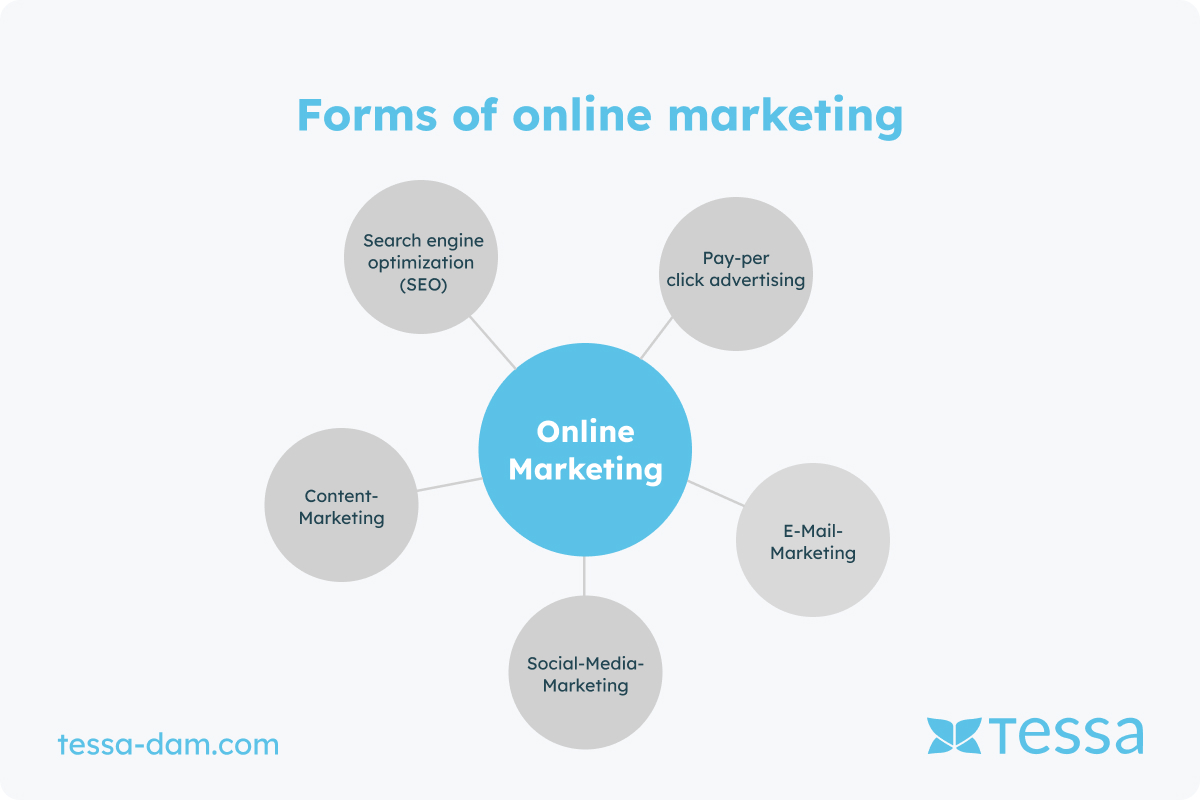Categorization
In recent years, online marketing has emerged as a vital instrument for companies to showcase products and services to a global audience. This evolution is reflected in the growing significance of digital platforms and technologies, enabling companies to access their target audiences with precision and engage with them effectively.
Definition of Online Marketing
Online marketing is a holistic approach to promoting products or services via the internet. It encompasses a variety of strategies and techniques, including search engine optimization (SEO), content marketing, social media marketing, email marketing, and pay-per-click advertising. The goal of online marketing is to target specific audiences, enhance brand visibility, acquire customers, and build long-term relationships. Leveraging digital platforms and technologies enables companies to effectively disseminate their marketing messages and engage with customers on a more personal level.
Distinguishing Online Marketing from Digital Marketing
While online marketing focuses solely on internet-based marketing activities, "digital marketing" encompasses a broader spectrum. Digital marketing includes not only online activities but also all forms of marketing that utilize digital technologies and channels, including mobile apps, digital out-of-home advertising (DOOH), digital television, and more. Thus, online marketing is a specific subset of digital marketing that concentrates on the internet as the primary distribution channel.
Forms of Online Marketing
These include search engine optimization (SEO), content marketing, social media marketing, email marketing, and pay-per-click advertising. Each of these methods offers unique opportunities to increase brand visibility and reach in the digital realm.
Search Engine Optimization (SEO)
SEO is a critical component of online marketing aimed at enhancing a website's visibility in organic search results. By optimizing content, meta-tags, backlinks, and other factors, companies can improve their rankings in search results and drive more qualified traffic to their website.
Content Marketing
Content marketing involves creating and distributing high-quality content to engage, inform, and entertain a specific target audience. This can take the form of blog posts, videos, infographics, e-books, and other formats. By providing relevant and valuable content, companies can build trust and loyalty among their audience and increase brand awareness.
Social Media Marketing
Social media marketing involves using social networks such as Facebook, Instagram, LinkedIn, and others to interact with customers, share content, and build brand awareness. Through targeted advertising and community engagement, companies can expand their reach and directly engage with their target audience.
E-Mail Marketing
Email marketing is an effective way to stay in touch with customers and inform them about new products, special offers, and company news. By segmenting email lists and personalizing content, companies can send relevant messages to their audience and improve conversion rates.
Pay-per-Click Advertising
PPC advertising allows companies to place ads on search engines and other platforms and only pay when a user clicks on the ad. By selecting keywords strategically and optimizing ads, companies can increase visibility and drive qualified traffic to their website.
The role of data and analytics
Data plays a central role in online marketing, providing valuable insights to optimize marketing strategies and effectively target audiences. Through data analysis, companies can understand their audience's behavior, identify trends, and make informed decisions.
Key Performance Indicators (KPIs) such as website traffic, conversion rates, average order value, and customer retention are crucial metrics monitored regularly to measure the success of marketing campaigns and make necessary adjustments.
Moreover, data analysis enables deeper audience segmentation, allowing companies to create personalized marketing messages and run more targeted campaigns. By leveraging data, companies can also anticipate potential trends and adapt quickly to changing market conditions.
Overall, data analysis empowers companies to continuously improve their marketing strategies and maximize return on investment (ROI) in the digital space.
Personalization and customer experience
Personalizing content and offerings is a fundamental aspect of online marketing, allowing companies to address the needs and preferences of their audience more effectively. For instance, Amazon's personalized product recommendations based on customers' browsing and purchasing history exemplify this approach. Such personalized strategies enhance customer engagement and foster brand loyalty, ultimately leading to an enhanced customer experience.
The future of Online Marketing
The future of online marketing will be characterized by increased integration of Artificial Intelligence (AI) and automation technologies. These advancements will enable companies to further optimize their marketing strategies and tailor them more precisely to the needs of their target audiences. Furthermore, the ongoing digitization of society will bring new opportunities and challenges to online marketing, necessitating companies to respond with flexibility and innovation.
Conclusion
A crucial role in the modern business environment.
Overall, online marketing is a dynamic and continually evolving discipline that plays a crucial role in the modern business environment. Companies capable of leveraging the latest trends and technologies in online marketing will strengthen their competitiveness and ensure long-term success.





